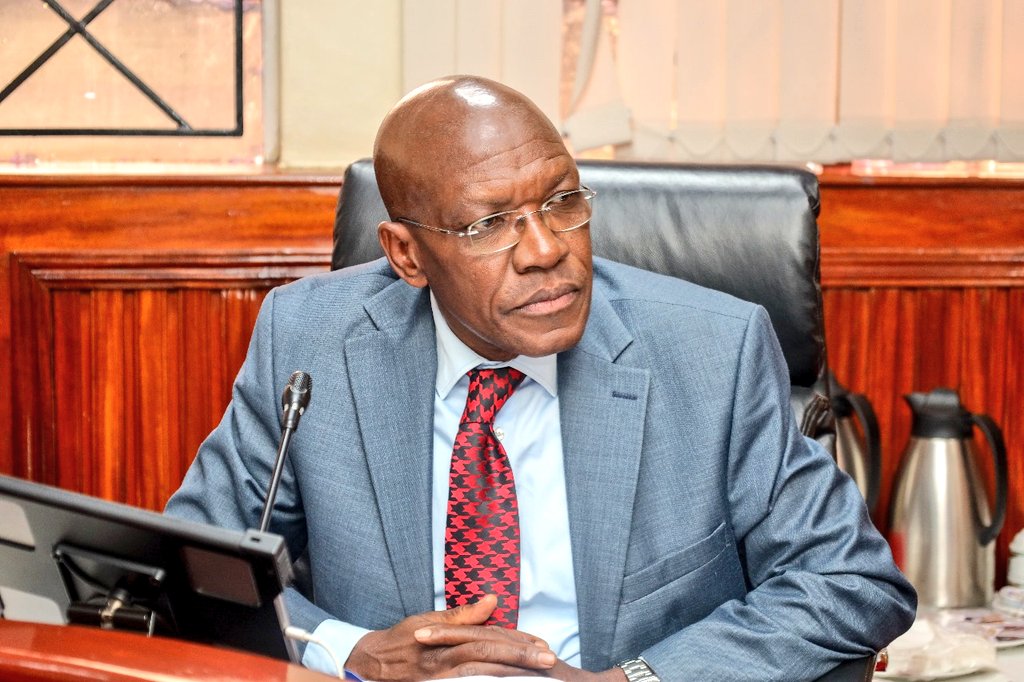Renal association advocates for updated dialysis reimbursement to reflect true costs

They say increase in cost of consumables, coupled with the depreciation of Kenya shilling, had placed a substantial financial strain on healthcare.
The Kenya Renal Association has raised concerns regarding the current reimbursement rates for dialysis, which have not been adjusted to reflect the escalating costs associated with providing these life-saving services.
The association highlights that a 50 per cent increase in the cost of consumables, coupled with the depreciation of the Kenya shilling, has placed a substantial financial strain on maintaining the quality of care that patients deserve.
More To Read
- Study reveals why colorectal cancer resists immunotherapy
- SHA disburses Sh3 billion for emergency, oncology and dialysis services
- From wheelchair to walking: The miracle of dialysis that fuels a nurse’s passion in Eastleigh
- World Hypertension Day: How high blood pressure is killing a lot of Kenyans as it goes undetected
- Kenya takes historic step in kidney transplants as KUTRRH prepares for full procedures
- Fighting for life: The struggles and hope for kidney patients in Kenya
Dialysis is a procedure to remove waste products and excess fluid from the blood when the kidneys stop working properly. It often involves diverting blood to a machine to be cleaned.
Normally, the kidneys filter the blood, removing harmful waste products and excess fluid and turning these into urine to be passed out of the body.
In a letter addressed to Social Health Authority CEO Elijah Wachira on Monday, ) said dialysis treatment extends beyond the mechanical process of blood purification and involves multiple critical components that ensure comprehensive patient care.
Wala highlighted that different forms of vascular access, such as AV fistulas, grafts and catheters, are tailored to each patient, requiring specific resources and expertise.
He said pre-dialysis screening is also vital for customising treatment plans to individual needs, ensuring the effectiveness and safety of dialysis sessions.
“Some patients require two weekly sessions, while others might need three, impacting overall treatment costs. Others need essential medications and this includes costs for intravenous iron and erythropoiesis-stimulating agents (ESAs), critical in managing the common complication of anaemia in dialysis patients,” he said.
He added that regular clinical reviews and blood tests are necessary for ongoing assessment and timely adjustment of treatment plans.
He further criticised the costs arising from preventative vaccinations and treatment of potential complications like infections or catheter thrombosis.
“Furthermore, the operational overheads such as salaries, facility rent, utilities, maintenance, and the capital costs involved in setting up and equipping a dialysis centre are substantial and must be adequately funded to sustain operations,” he said.
Wala called on the SHA to conduct a thorough review of the current reimbursement model to ensure it reflects the true costs associated with comprehensive dialysis care.
He reiterated that adjusting the reimbursement rates is crucial for the continued provision of these essential services without compromising on care quality.
“We are prepared to provide detailed insights and data to assist this review process and propose a constructive dialogue with your office to expedite the development of a more equitable reimbursement framework,” he said.
Top Stories Today












































